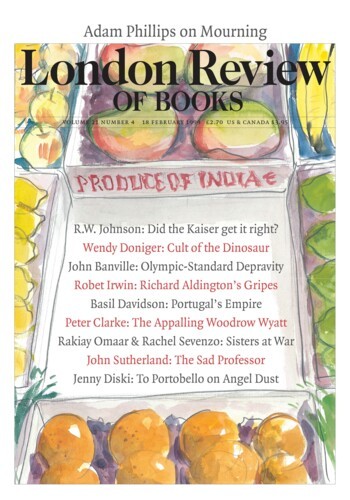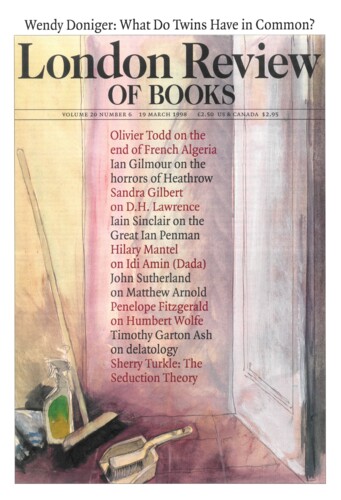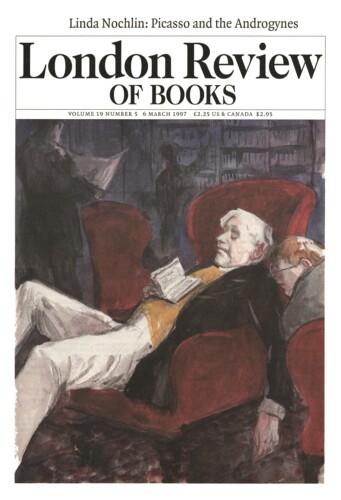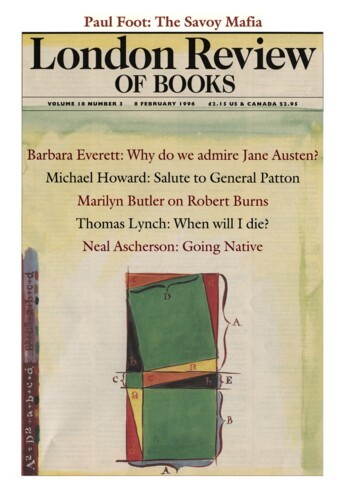Mae West and the British Raj: Dinosaur Icons
Wendy Doniger, 18 February 1999
One of the best of the many puns in this book is the gloss of ‘dinosaurus’ as ‘Dinos’R’Us’, a take-off on the ‘Toys’R’Us’ logo that sends a double message through its form (we are talking about advertising, more specifically about advertising aimed at children) and content (the dinosaur is a ‘cultural icon’ that somehow holds the key to ‘us’, to our national identity, or political unconscious, or economic agenda, or Freudian unconscious, or all of the above). This is a heavy burden to lay even on such a big animal, and requires some massive scholarly leverage; W.J.T. Mitchell invokes the secular trinity of Darwin, Marx and Freud. He traces the historical origin and development of our ideas about dinosaurs, through evolutionary theory and palaeontology (primarily Darwin and Cuvier), 19th and 20th-century history of science, political history, fiction (the ‘lost worlds’ of Jules Verne, Edgar Rice Burroughs and Arthur Conan Doyle), film, advertising, depth psychology and art (paintings in art museums and museums of science, cartoons and comics).‘





